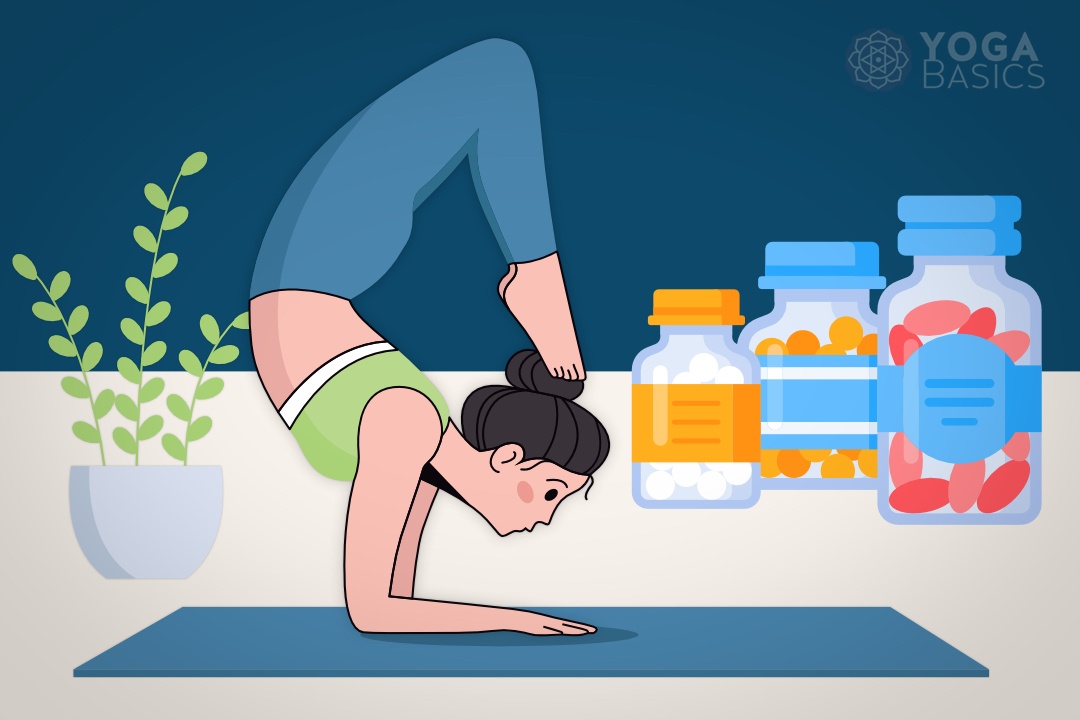Beginner’s Guide: How to Talk to Someone With Anxiety
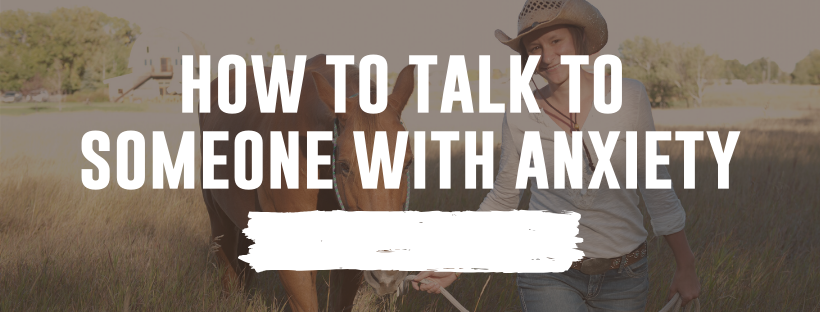
Big Sky Yoga Retreats has always been focused on health. But Margaret and team don’t just care about physical health. Anyone who has been on a retreat has benefitted mind, body, and soul. Today, I want to talk about the mind.
From time to time, all people feel anxious. For some, though, anxiety is a lifelong mental health challenge that must be managed and mitigated. I’m one such person, and the pandemic has sent my anxiety into major overdrive.
As I navigate this situation, I’m realizing how important it is for those around me to understand that anxiety is more than just “feeling nervous.” I need friends and family to communicate and support me in certain ways — and I need them to avoid unintentionally setting me back.
If there’s someone in your life who suffers from anxiety, I hope this guide gives you a practical roadmap to interacting with them when they’re struggling.
First Things First
Before we get into the weeds, I want to stress something: take anxiety seriously.
I find it helpful to think about anxiety like a serious peanut allergy.
It’s a major factor influencing my health and wellbeing, and ingesting the wrong thing can really hurt me. I also need to make people around me aware of it so they can help keep me safe. More importantly, it isn’t my fault — and I don’t need to apologize for it.
Anxiety is both a mental construct and 100% real at the same time. That’s why it can be so hard to know how to help someone who’s struggling. Read on for my top 10 things that help — and don’t help — when dealing with anxiety.
10 Things That DO Help
1 // Model Confidence and Calm
Anxious people are always on the lookout for folks I call “markers.” These are people in my family, social circle, or world at large whom I look to for indications of how I should a) feel about a situation and b) react to a situation.
Think of markers like flight attendants during a storm. Passengers watch their faces and listen to their tone during rough air. As long as the attendants remain calm and smiling, serving colas and crackers, you breath easier. They’re ok, so you’re ok.
Being one of those “markers” for your anxious friend of family members is invaluable. Right now, those with medical expertise who can model confidence and calm are especially valuable. We’re looking to you for a ‘reality check,’ and you can help us by reminding us about the things we do have control over and why we will be ok. Talk about plans for the future, too.
2 // Offer Reassurance
Similarly, one of the best things you can do for an anxious friend is to offer reassurance. Remind us about all the things that are not broken. Remind us about all the people who are not in trouble. Remind us that many things are OK — including us.
During the pandemic, I feel encouraged when people says things like this to me: “Once this is under control…” or “When we come out the other side of this…” or “We’re making process in XYZ area…”
Anxious people have many skills and talents, but reassuring ourselves during times of stress isn’t usually one of them. Help us return to reality, see progress, and remember there is a future.
3 // Outsource Hope
Anxiety is a double-edge sword. I’m scared of so much right now, but I’m also desperate for signs of hope and good news. That’s why it’s hard not to hop on Google and search for good stuff, research treatment progress, check vaccine timelines, etc.
But the internet is NOT a safe place for anxious people. It’s a giant jar of extra chunky peanut butter — with crushed peanuts on top and peanut drizzle on top of that. As hopeful as our intentions may be, Google’s algorithm serves up “related content” that you can’t control — and it does so super fast. Even if you search for “good news,” the word “news” will result in a lot of other headlines you don’t want to see.
Search results load quicker than you can close browser tabs. Links you follow within otherwise helpful articles can lead to really unhelpful places. Headlines designed to get clicks populate in sidebars with no option to hide them. That’s why the internet is a minefield of anxiety.
My latest solution? I “outsourced hope” to my brother in law. Reading about current events and following the news doesn’t stress him out the way it does to me. I asked if he would keep me abreast of only positive and hopeful developments related to treatments, vaccines, etc.
That means distilling GOOD things into a quick text message — not sending me links to articles that could take me down rabbit holes. Now, I don’t feel drawn to obsessively “research” because I know that when good things happen, he’ll tell me about them.
4 // Make Thoughts Tangible
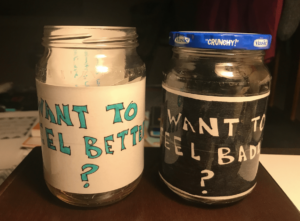
If you’re not sure what to say to someone with anxiety, try doing something instead. Consider taking two empty jars (or other containers) and labeling them “Want to feel better?” and “Want to feel badly?” Leave a lid on the bad jar, but the other should remain open.
Then cut up a bunch of note cards or pieces of paper into two stacks.
Encourage your friend to write down each of their fears and worries on a piece of paper — then put them into the “Want to feel badly” jar and tighten the lid. No worry is too big or too small.
Then encourage your friend to write down all the positive, hopeful, and encouraging things that help them feel better. Put them in the other jar (without a lid). I created this jar exercise last week, and it’s already made a big difference.
When I feel myself starting to get anxious about a new worry, I write it down and put it into the bad thoughts jar. I put the lid on, and I’m not allowed to continue worry about it while it’s in the jar. If I start worrying about something I’ve already put into the bad thoughts jar, I’m only allowed to continue thinking about it if I unseal the jar, find that specific piece of paper, and take it out.
I have yet to do so.
On the flip side, when I hear good things, see progress being made, or discover something that helps me feel safer, I write it down and put it in the good jar. Nothing good is too small or insignificant.
I’m allowed to look inside this jar anytime and go through all the helpful thoughts until I feel more peaceful. Sometimes I pull out a few good things, and other times I sit down and go through the entire jar.
*I recommend keeping the jars on a bedside table. Going to sleep can be tough for racing minds, and going through the good jar before bed is a great way to calm your thoughts.*
5 // Highlight the Helpers
It’s easy for us to fixate on people who are NOT helping. These people, their actions, and their words are toxic to my mental health.
That’s why it helps when my friends and family help me refocus on other people who ARE helping make things better, safer, and healthier for everyone. This may be as simple as mentioning a plane full of doctors and nurses going to volunteer across the country where they’re most needed. It may be talking about a company that is supporting small businesses — at its own expense. It may be scientists coming up with new ways to manufacture and deliver vaccines at scale.
No act of kindness, helpfulness, or competence is too small to highlight.
6// Not Now Doesn’t Mean Not Ever
Anxious people tend to “catastrophize,” which means our brains grow a single small seed of trouble into a world-ending scenario. We don’t like doing it, and we don’t try to do it — but it happens.
Remind us that just because things don’t feel as good as they did before COVID, that doesn’t mean we’re not safe right now. Remind us that just because we don’t have a vaccine right now doesn’t mean we won’t ever have one. Remind us that there is a future, we will be part of it, and we’re going to be OK until it gets here.
7 // Help Us Help
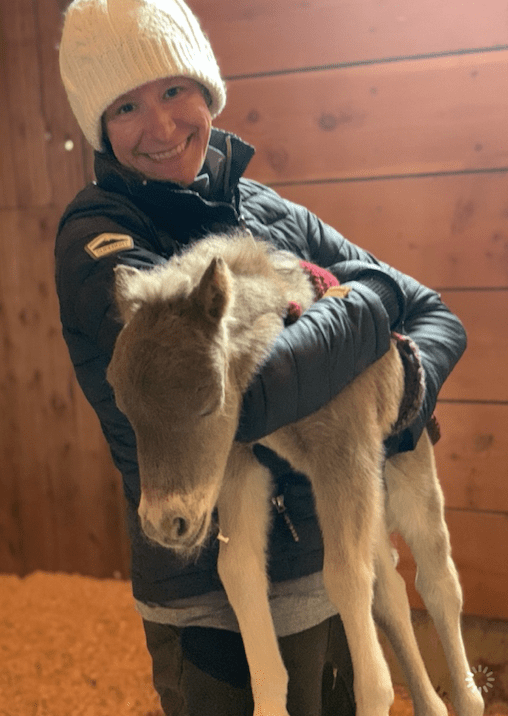
One of the most frustrating things about suffering from anxiety is feeling like you’re not in a position to be able to help. Typically, I’m a highly productive and driven person. These days, my world is very small – like a little cocoon. I don’t have the mental or physical energy to “jump in” and do big, giant things yet. I say “yet” because this state isn’t permanent.
But I do want to help. I want to still make others feel better, even if I can’t be a sounding board for complaints or frustrations like I could before.
For me, I’ve been putting my limited energy into crafts and gifts. I draw and paint cards for friends. I send little presents to surprise people. I sew funny projects that make people smile. Those are things I CAN do right now, and getting texts from friends and family that smiled because of something I sent them makes my day.
If you have ideas for how we use our capabilities to help others’ while we aren’t at “full capacity,” share them with us. We want to help, and it makes us feel better!
8 // Check In
Normally, I’m pretty responsive to texts, emails, calls, etc. These days, that’s simply not the case. In fact, I worry that if I reach out to someone to say hello, they may unintentionally say something that triggers my anxiety. UGH.
Don’t take it personally if your anxious friend isn’t quick to text back, doesn’t reply to your ‘funny’ meme, or doesn’t reach out to you for a while. Check in with us (we like hearing from you and knowing you care!) — just be careful to keep things light, hopeful, and kind.
Because anxious people may need to keep their worlds smaller for a while, it can be easy to think everyone else will forget about you. That’s why it’s lovely to get cards or little gifts in the mail that show we’re on your mind. Sweet texts and emails can serve the same purpose.
During COVID, some of my favorite gifts have been handwritten notes, a deck of daily affirmation cards, crafts, and cookies.
9 // Encourage New Routines
Most people’s routines have shifted very suddenly in the past several months. For anxious people, that’s especially hard because it makes us feel completely out of control. We don’t know what to expect anymore, and that’s frightening.
You can help us by establishing new routines we can count on. It can be as simple as scheduling a recurring online workout class or movie nights at the same time every evening. It might be setting up an online ordering account for grocery delivery and doing a curbside pickup on a particular day of the week.
Talk to your friend and ask what might help them feel safer and more secure during this time.
10 // Be Patient
We do not want or try to suffer from anxiety. We know it can make life harder or inconvenient sometimes for those around us, and we often feel guilty about not transforming into Super Humans during times of crisis.
Be patient with us. Be kind to us. We’re trying our best.
10 Things That DON’T Help
It can be hard to know what not to say and do around your friend or family member — especially if he or she tries to “keep it together” instead of tell you when anxiety is running high. (I’m guilty of this, too.)
Here are some things that can worsen anxiety in others.
1 // Saying “You’re Not Usually Like This”
In times of peak anxiety (like during a pandemic, for example), don’t expect your friend to behave like it’s business as usual. Sure, during normal times, the majority of people with anxiety can keep it in-check and function normally. We use things like exercises, mindful breathing, meditation, prescriptions, healthy eating, sleep, therapy, or other tools.
Now, though, our standard anxiety management toolbox may not work — not as well, or not at all.
The same people who are normally active on social media, quick to text, call, or email back, or seem unflappable may become nearly unrecognizable. They might disappear from places like Facebook, wait days or weeks before responding to messages, or appear noticeably shaken.
Reminding us of how we “usually” are isn’t helpful. We already know things are different, and we’d give anything to return to our “normal.”
2 // Saying “Take Your Mind Off It”
When we’re worried or fearful, avoid telling us to “take your mind off it.” If we had the power to easily do so, we wouldn’t suffer from anxiety. This phrase also makes us feel like we’re choosing to feel anxious.
This isn’t to say that suggesting alternate activities or talking about something else is harmful — that can be good! Just don’t assume we can easily turn our fears on and off like a light switch. We can’t 🙁
3 // No News IS Good News
You may think you’re sharing a simple article headline, TV show, podcast, tidbit, stat, meme, or social media post — but things that may be funny or interesting or frustrating to you may be downright debilitating to us.
Please don’t send us links to internet articles, memes, frustrations, scary stats, or anything else that might lead us down a rabbit hole online or in our minds. When in doubt, keep it to yourself!
Even a single headline we glimpse walking by the TV you’re watching can balloon into an entire day or week of anxious thoughts. Overhearing you talking about the news or current health situation in another room can do the same thing.
Going back to the peanut allergy metaphor, news stories, links, stats, COVID memes, etc. are like handing us a PB&J sandwich. It’s dangerous, and we may not know what’s happening until it’s already in our hands (i.e. minds).
4 // Avoid Emotional Contagion
This is a big one. Many anxious people are also inherently emotional and empathetic. That means we often take the emotions, worries, and troubles of others and put them onto our own shoulders. We feel others’ emotions as if they were our own.
Now expand that to an entire world dealing with a pandemic, people losing their jobs, people losing loved ones, and on and on it goes. It. Is. Exhausting.
If you have alternative outlets who don’t suffer from anxiety, try to use those people as your sounding board for frustrations, worries, fears, and sad stories, other emotional struggles.
*It’s not that we’re suddenly bad friends.* We wish that we could provide the type of support you’re used to, but we may not be able to right now. Your troubles become our troubles, as do everyone else’s. But know this — we still care and we still love you.
5 // Not Funny
You’ll need to play this one by ear, depending upon your specific friend, but don’t expect a great sense of humor. Even if your friend is normally hilarious, the life of the party, and upbeat, that may not be the case right now. They may have been sarcastic previously — or appreciated sarcasm — but no longer seem to.
Please don’t send us memes, frustration humor, email forwards, or other “amusing” articles. We see/read them before being able to decide whether they’re safe for our current mindset.
Exceptions: Cute animal photos and videos are still great. #allthepuppiesandponies
6 // Turn Off Political Pundits
Anxiety can significantly if you’re reading/watching/talking political coverage all the time around your anxious friend. Often, these topics don’t simply make your friend frustrated — it can make them feel genuinely terrified.
Play it safe, and don’t discuss anything political — especially if you know your friend is on the other side of the aisle. If you want to rant, talk policy, or speculate about the upcoming election, find someone else.
7 // Expect Previous Type of Work
I genuinely enjoy being busy and working hard — usually. During times of peak stress, though, it’s nearly impossible for me to concentrate on work. Give us additional time and space to get our work done until the worst has passed.
What’s worse, the majority of Americans cannot get disability insurance policies that covers anxiety. This means that if you break both your arms and can’t do your job anymore, you’re covered. If a giant life event happens, and your anxiety becomes so debilitating that you can’t work, though, nada, zip, zilch.
8// Assume “Easy” Things Are Still Easy
Your anxious friend may normally be a good eater, sleeper, exerciser, etc. Activities that were once easy may no longer be. During COVID, I’ve lost weight, lost sleep, and have stopped going to grocery stores altogether.
Ask your friend what they’re struggling with, and pitch in if you can. For me, that means my dear friend Margaret (yes, owner of Big Sky Yoga Retreats) has been shopping for my parents and me. It may feel small and easy to her, but it’s one of my biggest anxiety triggers. She has graciously lifted that mental load, and it’s made a massive difference. I’ll never forget it.
9 // Light Our Hair on Fire
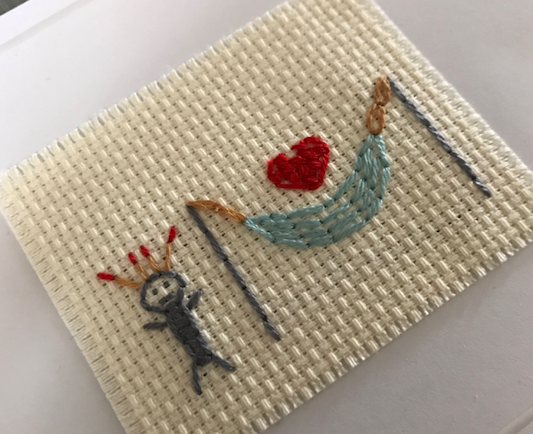
One of my favorite mental images is that there’s a little stick figure person with hair made of matches. He spends 24/7/365 running around my brain trying to find new ways to light his hair on fire.
Meanwhile, I spend 24/7/365 running around removing anything flammable, turning off stove burners, putting out brush fires, and trying to wrestle the little man into a hammock so I can rock him to sleep. It’s like I’m baby proofing my noggin.
Please don’t make things harder by giving the stick man a can of kerosene or sneaking him a cigarette lighter.
10 // Tell Us We’re Crazy
We’re not crazy — we’re scared crazy. It’s very different. If you don’t feel qualified, able, or interested in helping your friend through his or her anxiety, that’s 100% OK.
There are plenty of other options you can suggest, like messaging therapy through Talkspace, Calm and Headspace meditation apps, or professional support.
You’ll Find Your Way
There’s no guaranteed way to help someone with anxiety. Some days, one thing might work — the next day, it may not. Just the fact that you’re trying to help will make a world of difference. I hope these tips give you somewhere to start.
Yeehaw, Namaste & Don’t Touch Your Face,
Nicole, BSYR Ranch Hand






